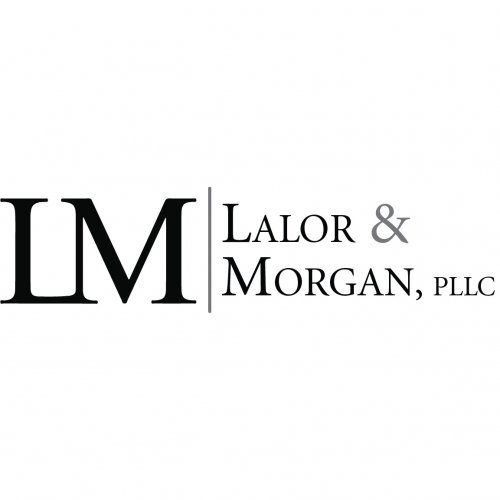Best Public-Private Partnerships (PPP) Lawyers in Ridgeland
Share your needs with us, get contacted by law firms.
Free. Takes 2 min.
List of the best lawyers in Ridgeland, United States
About Public-Private Partnerships (PPP) Law in Ridgeland, United States
Public-Private Partnerships, widely known as PPPs, are collaborative agreements between government entities and private sector companies to finance, build, operate, or maintain public projects and services. In Ridgeland, United States, PPPs may be used for infrastructure projects such as roads, bridges, public buildings, water and sewage systems, schools, and more. These partnerships blend public interests with private sector efficiency and innovation. The legal framework governing PPPs in Ridgeland is influenced by both Mississippi state law and local ordinances, addressing contract structures, procurement, risk allocation, and compliance standards.
Why You May Need a Lawyer
Engaging in a Public-Private Partnership can be legally complex and may require specialized legal advice. Common situations where individuals, businesses, or government officials might seek legal help in PPPs include:
- Drafting and negotiating PPP agreements or contracts
- Understanding risk allocation between public and private parties
- Ensuring compliance with local, state, and federal regulations
- Navigating procurement and bidding processes
- Resolving disputes or claims arising during the partnership
- Conducting due diligence on project feasibility and legal risks
- Advising on tax implications and financial structuring
- Securing necessary permits, licenses, and approvals
- Managing intellectual property and confidentiality concerns
- Assessing environmental, labor, and social impact obligations
Given the long-term nature and significant financial commitments in PPPs, having an experienced lawyer helps safeguard your interests, ensure legal compliance, and facilitate successful implementation.
Local Laws Overview
In Ridgeland, PPPs operate within the framework of Mississippi state statutes and municipal ordinances. Key aspects of local laws relevant to PPPs include:
- Procurement Procedures: Projects often require competitive bidding and transparency to prevent conflicts of interest.
- Contractual Obligations: PPP contracts must define the scope, duration, risk sharing, dispute resolution, and performance benchmarks clearly and in compliance with applicable laws.
- Financing: Local laws may set limitations on how public funds are used and how private partners may participate in project financing or revenue sharing.
- Permitting and Zoning: Projects must comply with Ridgeland’s zoning ordinances and obtain appropriate building and environmental permits.
- Accountability: Regular audits and reporting are often mandated to ensure the public interest is protected and the project delivers on its objectives.
- Public Input: Certain projects may require public hearings or community engagement as part of the approval process.
- Risk Management: Laws specify protocols for allocating construction, financial, operational, and legal risks between public and private stakeholders.
As laws and policies may change, consulting with a local attorney is the best way to stay current on legal requirements for PPPs in Ridgeland.
Frequently Asked Questions
What is a Public-Private Partnership (PPP)?
A PPP is a cooperative arrangement between a government agency and one or more private sector companies to develop, finance, build, operate, or maintain infrastructure or services that benefit the public.
Are PPPs common in Ridgeland, United States?
PPPs are increasingly being considered in Ridgeland for infrastructure improvements, especially when public resources are limited and projects require private sector expertise or financing.
What types of projects can use PPPs in Ridgeland?
Typical PPP projects in Ridgeland include transportation infrastructure, utilities, public buildings, schools, and recreational facilities.
Who oversees PPP projects in Ridgeland?
Local government agencies, in coordination with relevant state bodies, oversee approval, implementation, and monitoring of PPP projects. Oversight also includes compliance auditing.
What legal issues should be addressed in a PPP contract?
Key legal issues include roles and responsibilities, risk allocation, dispute resolution mechanisms, project timelines, payment terms, termination clauses, and performance standards.
What are the main risks in entering a PPP agreement?
Risks include financial exposure, regulatory changes, contract disputes, delays in approvals, unforeseen construction issues, and shifts in public policy. Effective contracts and due diligence help manage these risks.
How are PPPs financed?
Financing may come from a mix of public funds, private investment, grants, loans, and sometimes user fees. Legal review helps ensure financing arrangements comply with state and local laws.
Do PPPs require public input or approval?
In many cases, especially for large or impactful projects, public input is solicited through hearings or community meetings as part of the approval process.
Can PPPs be challenged or opposed by the public?
Yes, stakeholders or members of the public may raise concerns or file legal challenges if they believe required procedures were not followed or if the project has significant negative impacts.
What should I do if I want to participate in or propose a PPP project?
Engage legal counsel early to understand the requirements, participate in public processes, and ensure your proposal is compliant and competitive under local procurement laws.
Additional Resources
To learn more or seek guidance on PPPs in Ridgeland, consider reaching out to the following:
- Ridgeland City Government Public Works or Economic Development Departments
- Mississippi Development Authority
- Mississippi Department of Transportation (for transportation projects)
- Local Chamber of Commerce
- American Bar Association - Section of Infrastructure and Regulated Industries
- Local law firms with experience in government contracts and PPPs
Next Steps
If you are considering entering a Public-Private Partnership in Ridgeland, United States, start by gathering preliminary information about your project and your intended role. Then, consult with a lawyer who specializes in PPP and government contract law to evaluate your options, review applicable regulations, and assist with proposal preparation, negotiation, and compliance. Prompt legal guidance ensures smoother project progression and minimizes potential risks. For best results, act early in the process to avoid costly mistakes or legal setbacks.
Lawzana helps you find the best lawyers and law firms in Ridgeland through a curated and pre-screened list of qualified legal professionals. Our platform offers rankings and detailed profiles of attorneys and law firms, allowing you to compare based on practice areas, including Public-Private Partnerships (PPP), experience, and client feedback.
Each profile includes a description of the firm's areas of practice, client reviews, team members and partners, year of establishment, spoken languages, office locations, contact information, social media presence, and any published articles or resources. Most firms on our platform speak English and are experienced in both local and international legal matters.
Get a quote from top-rated law firms in Ridgeland, United States — quickly, securely, and without unnecessary hassle.
Disclaimer:
The information provided on this page is for general informational purposes only and does not constitute legal advice. While we strive to ensure the accuracy and relevance of the content, legal information may change over time, and interpretations of the law can vary. You should always consult with a qualified legal professional for advice specific to your situation.
We disclaim all liability for actions taken or not taken based on the content of this page. If you believe any information is incorrect or outdated, please contact us, and we will review and update it where appropriate.











